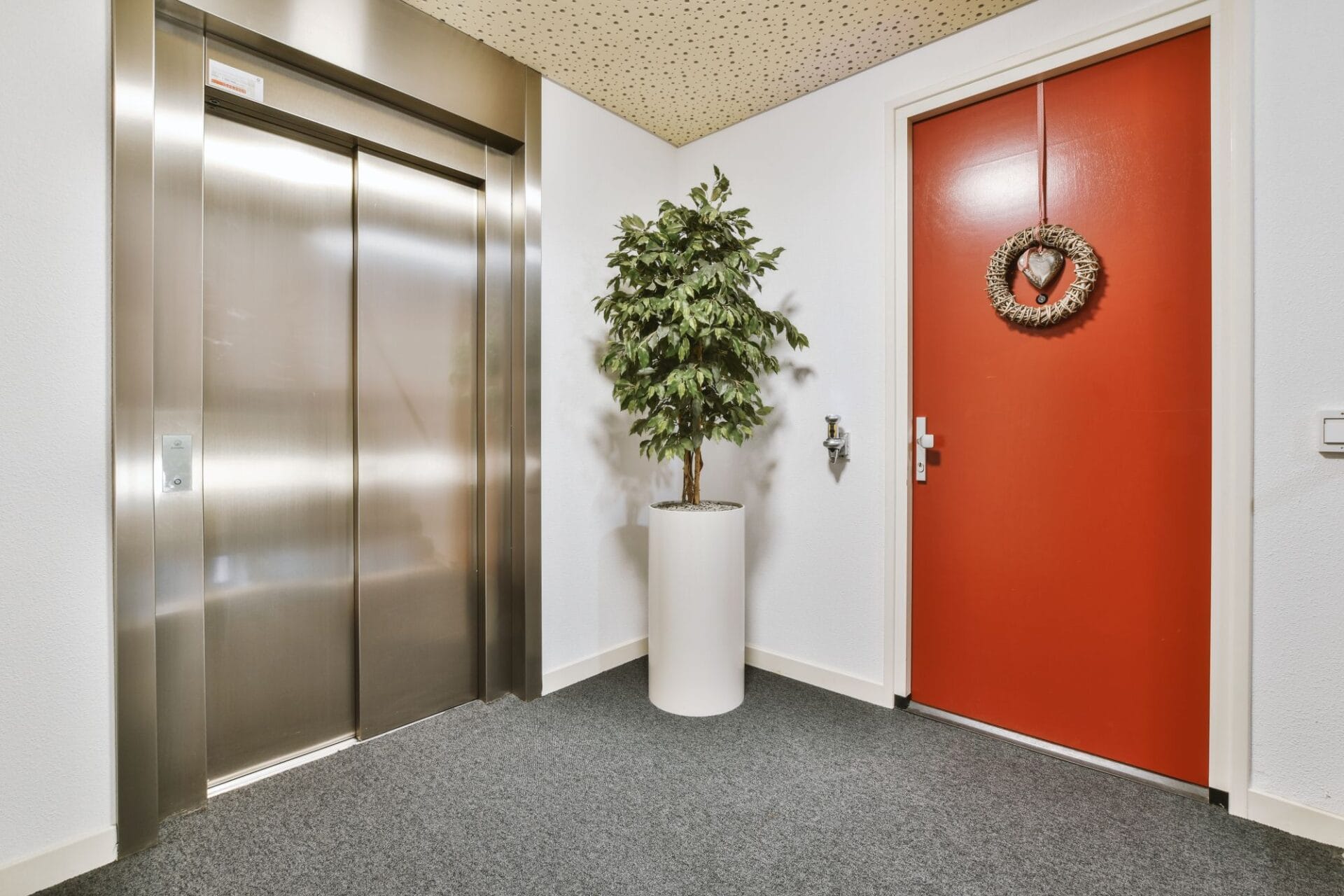Reserve funds and studies have become a hot topic among condo and HOA communities. Many states have or are considering enforcing laws that regulate reserves. Motivated by the Surfside condo collapse, lawmakers don’t ever want to see another community in the same position as the Miami condominium ended up in.
However, depending on the rules, owners may be feeling overwhelmed by the new financial pressures placed on them, especially if they live in an older building.
Table of contents
- Are reserve studies important?
- Reserve study requirements by state
- What if our state does not have reserve study laws?
- What if we need help with reserve management?
Are reserve studies important?
Reserve funds are used to repair or replace major physical components which make up the common elements of the association. Reserve studies are conducted to determine the health of each component, and how much it would cost to repair or replace the component if it stopped working.
Reserve studies help condos and HOAs create a stable and equitable funding plan to offset the anticipated future major common area expenditures. While it can be hard to “catch up” if the fund is too low, it is important for communities to do all they can to ensure they have the money to pay for critical repairs.
Below is a list of states that require associations to conduct reserve studies.
Reserve study requirements by state
California
There are no statutory requirement to fund reserves. However, Civil Code Section 5550 requires community associations to:
- Conduct, at least once every three years, a reasonably competent and diligent visual inspection of the accessible areas of the major components that the association is obligated to repair, replace, restore, or maintain as part of a study of the reserve account requirements of the common interest development, if the current replacement value of the major components is equal to or greater than one-half of the gross budget of the association, excluding the association’s reserve account for that period.
The board shall review this study annually, and shall consider and implement necessary adjustments to the analysis of the reserve account requirements as needed.
- The study required by this section shall at a minimum include:
- identification of the major components that the association is obligated to repair, replace, restore, or maintain that, as of the date of the study, have a remaining useful life of less than 30 years
- identification of the probable remaining useful life of the components identified in the section above, as of the date of the study
- an estimate of the cost of repair, replacement, restoration, or maintenance of all identified components
- an estimate of the total annual contribution necessary to defray the cost to repair, replace, restore, or maintain all identified components during and at the end of their useful life, after subtracting total reserve funds as of the date of the study
- a reserve funding plan that indicates how the association plans to fund the contribution to meet the association’s obligation for the repair and replacement of all major components with an expected remaining life of 30 years or less, not including those components that the board has determined will not be replaced or repaired
Delaware
According to Delaware Uniform Common Interest Ownership Act, Section 81-205, condominiums must include a provision in their declaration that requires the association to create and maintain, in addition to any reserve for contingencies, a fully funded repair and replacement reserve based on a current reserve study.
Section 81-315 states that minimum contributions to reserves vary based on the Reserve Study or a statutory formula based on number of common area components.
In the event that the board is responsible for the maintenance, repair and replacement of four or more of the systems or components (hallways, stairwells, management or administrative offices, roofs, windows, exterior walls, elevators, HVAC systems, swimming pools, exercise facilities, clubhouses, parking garages [excluding surface parking lots], masonry bridges used by motor vehicles, bulkheads, docks) the minimum percentage of the annual budget that must be assigned to the repair and replacement reserve is 15%.
If the responsibility extends to only three systems and components, the minimum percentage is 10%. If the responsibility extends to only two or fewer of the above-described systems and components, the minimum percentage is 5%.
In the event that the association’s accountant certifies that the funds in the repair and replacement reserve are in excess of the sum required to constitute a fully funded repair and replacement reserve, the board shall refund or credit the surplus of the excess sum to the unit owners. In the event that the association does not have a current reserve study as required by this chapter, the minimum percentages of the association’s budget to be assigned to the repair and replacement reserve shall be the percentages prescribed in the paragraphs above.
Condominium disclosure statements must include the current balance in reserves, and the most recent reserve study, states Section 81-409.
Finally, as per Section 81-324, condominiums and cooperatives must contain a line item in their annual budget funding any replacement and repair reserve.
Florida
Florida has introduced several laws regarding reserves in response to the Surfside collapse. Firstly, under general provisions of Chapter 718 of the 2024 Florida Statutes, condominium financial reporting rules must include standards for presenting a summary of association reserves, including a realistic estimate of the annual amount of reserve funds that would be necessary for the association to fully fund reserves for each item based on the straight-line accounting method.
According to SB 4-D, in addition to annual operating expenses, the budget must include reserve accounts for capital expenditures and deferred maintenance. These accounts must include, but are not limited to, roof replacement, building painting, and pavement resurfacing, regardless of the amount of deferred maintenance expense or replacement cost, and any other item that has a deferred maintenance expense or replacement cost that exceeds $10,000.
The amount to be reserved for an item is determined by the association’s most recent structural integrity reserve study, which must be completed by December 31, 2024. If the amount to be reserved for an item is not in the association’s initial or most recent structural integrity reserve study, or the association has not completed a structural integrity reserve study, the amount must be computed using a formula based upon estimated remaining useful life and estimated replacement cost or deferred maintenance expense of each reserve item.
The association may adjust replacement reserve assessments annually to take into account any changes in estimates or extension of the use life of a reserve item caused by deferred maintenance.
This rule is very important. Effective December 31, 2024, members of a unit-owner controlled association are not allowed to provide “no reserves or less reserves than required.” There must be adequate funds going into the reserve account. Moreover, effective December 31, 2024, members cannot vote to use reserve funds, or any interest accruing thereon, for any other purpose other than their intended purpose.
Finally, accounting records must include, but are not limited to, all audits, reviews, accounting statements, structural integrity reserve studies, and financial reports. Structural integrity reserve studies must be maintained for at least 15 years after the study is completed.
Hawaii
Section 514B-148 of HB 2272 states that condominium budgets must indicate the estimated revenues and operating expenses of the association, information as to whether the budget has been prepared on a cash or accrual basis, the total replacement reserves of the association as of the date of the budget, and the estimated replacement reserves that the association will require to maintain the property based on a reserve study performed by the association – provided that the reserve study is reviewed by an independent reserve study preparer; provided further that the reserve study is reviewed or updated at least every three years.

Condos must also include a general explanation of how the estimated replacement reserves are computed, the amount the association must collect for the fiscal year to fund the estimated replacement reserves, and information as to whether the amount the association must collect for the fiscal year to fund the estimated replacement reserves was calculated using a per cent funded or cash flow plan.
The association shall assess unit owners to either fund a minimum of 50% of the estimated replacement reserves, or fund 100% of the estimated replacement reserves when using a cash flow plan.
A new association need not collect estimated replacement reserves until the fiscal year which begins after the association’s first annual meeting.
For each fiscal year, the association shall collect the amount assessed to fund the estimated replacement for that fiscal year reserves, as determined by the association’s plan.
The association must compute the estimated replacement reserves by a formula that is based on the estimated life and the estimated capital expenditure or major maintenance required for each part of the property. The estimated replacement reserves shall include:
- Adjustments for revenues which will be received and expenditures which will be made before the beginning of the fiscal year to which the budget relates
- Separate, designated reserves for each part of the property for which capital expenditures or major maintenance will exceed $10,000. Parts of the property for which capital expenditures or major maintenance will not exceed $10,000 may be placed in a single designated reserve
No association or unit owner, director, officer, managing agent, or employee of an association who makes a good faith effort to calculate the estimated replacement reserves for an association shall be liable if the estimate subsequently proves incorrect.
Maryland
HB 107 requires condominiums and HOAs that have conducted a reserve study on or after October 1, 2018 to complete an updated study within five years, and continue to do so every five years thereafter. If a condo or HOA has not had a reserve study conducted on or after October 1, 2018, it must have had a reserve study conducted on or before October 1, 2023. Updated reserve studies are to be completed at least every five years thereafter.
Councils have the authority to create and amend budgets for revenue, expenses, and reserves, as well as collect assessments from owners for common expenses. The annual budget must include reserve levels, which should be funded according to the latest reserve study.
If the most recent reserve study was an initial reserve study, the governing body shall, within three fiscal years following the fiscal year in which the initial reserve study was completed, attain the annual reserve funding level recommended in the initial reserve study.
Resale certificates must contain the current operating budget of the condominium, including details concerning the reserve fund for repair and replacement and its intended use, or make it clear that there is no reserve fund.
Nevada
The Common Interest Ownership Act requires associations to create and maintain adequate reserves, funded reasonably, to cover the repair, replacement, and restoration of major common elements. The association’s executive board is also required to conduct a reserve study at least every five years, review it to assess whether the reserves are sufficient, and make adjustments if needed. Section 116.31152 provides details for how this study should be conducted.
A public offering statement must include a budget which has a statement of the amount included in the budget as reserves.
New Jersey
Reserve studies are required within one year if not done within five years of January 8, 2024. A study must be completed every five years thereafter, mandates Section 45:22A- 44.2 of the New Jersey Statutes.
However, this requirement does not apply to associations of a planned real estate developments with less than $25,000 in total common area capital assets.
An association may levy and collect assessments duly made by the association for a share of common expenses or otherwise, including any other moneys duly owed the association, upon proper notice to the appropriate unit owner, together with interest thereon, late fees and reasonable attorneys’ fees, if authorized by the master deed or bylaws.
All funds collected by an association shall be maintained separately in the association’s name. However, for investment purposes only, reserve funds may be commingled with operating funds of the association. Commingled operating and reserve funds shall be accounted for separately, and a commingled account shall not, at any time, be less than the amount identified as reserve funds.
Oregon
Oregon Revised Statutes require homeowners associations to conduct an initial reserve study, prepare an initial maintenance plan and establish a reserve account.
The reserve account shall be used to fund major maintenance, repair or replacement of all items of common property which will normally require major maintenance, repair or replacement, in whole or in part, in more than one and less than 30 years, for exterior painting if the common property includes exterior painted surfaces, for other items, whether or not involving common property, if the association has responsibility to maintain the items, and for other items required by the declaration or bylaws.
The reserve account doesn’t need to include reserves for items:
- That can reasonably be funded from the general budget or other funds or accounts of the association
- For which one or more, but less than all, owners are responsible for maintenance and replacement under the provisions of the declaration or bylaws
The reserve account shall be established in the name of the homeowners association. The association is responsible for administering the account and for making periodic payments into the account.
The reserve portion of the initial assessment determined by the declarant shall be based on:
- The reserve study
or
- Other reliable information
A reserve account established under this section must be funded by assessments against the individual lots for which the reserves are established. Unless the declaration provides otherwise, the assessments under this subsection begin accruing for all lots from the date the first lot is conveyed.
The board shall conduct a reserve study or review annually and update the existing study to determine the reserve account requirements. Subject to subsection (8), after review of the reserve study or reserve study update, the board may, without any action by owners:
- Adjust the amount of payments as indicated by the study or update
- Provide for other reserve items that the board of directors, in its discretion, may deem appropriate
The reserve study shall:
- Identify all items for which reserves are or will be established
- Include the estimated remaining useful life of each item as of the date of the reserve study
- Include for each item, as applicable, an estimated cost of maintenance and repair and replacement at the end of the item’s useful life
The maintenance plan shall:
- Describe the maintenance, repair and replacement to be conducted
- Include a schedule for the maintenance, repair and replacement
- Be appropriate for the size and complexity of the maintenance, repair and replacement responsibility of the association
- Address issues that include but are not limited to warranties and the useful life of the items for which the association has maintenance, repair and replacement responsibility
The board of directors shall review and update the maintenance plan described under this subsection as necessary.
Tennessee
House Bill 750 states that if a condominium board has had a reserve study conducted on or after January 1, 2023, the board shall conduct the next reserve study within five years after the date the last reserve study was completed, and at least every five years thereafter.
If the board has not had a reserve study conducted on or after January 1, 2023, the board must have one done on or before January 1, 2024, and the study must be updated every five years.
Utah
Utah’s Condominium Ownership Act states that except as otherwise provided in the declaration, a management committee shall:
- Cause a reserve analysis to be conducted no less frequently than every six years
- Review and, if necessary, update a previously conducted reserve analysis no less frequently than every three years
The reserve fund analysis must include:
- A list of the components identified in the reserve analysis that will reasonably require reserve funds
- A statement of the probable remaining useful life, as of the date of the reserve analysis, of each component identified in the reserve analysis
- An estimate of the cost to repair, replace, or restore each component identified in the reserve analysis
- An estimate of the total annual contribution to a reserve fund necessary to meet the cost to repair, replace, or restore each component identified in the reserve analysis during the component’s useful life and at the end of the component’s useful life, and to prepare for a shortfall in the general budget that the association or management committee may use reserve funds to cover
- A reserve funding plan that recommends how owners may fund the annual contribution
The management committee may conduct a reserve analysis itself or may hire a reliable person or organization, as determined by the management committee, to conduct the reserve analysis.
Virginia
Under the Virginia Condominium Act, except to the extent otherwise provided in the condominium instruments and unless the condominium instruments impose more stringent requirements, the condominium shall:
- Conduct, at least once every five years, a study to determine the necessity and amount of reserves required to repair, replace and restore the capital components
- Review the results of that study at least annually to determine if reserves are sufficient
- Make any adjustments the executive organ deems necessary to maintain reserves, as appropriate
To the extent that the reserve study conducted in accordance with this section indicates a need to budget for reserves, the unit owners’ association budget shall include, without limitations:
- The current estimated replacement cost, estimated remaining life and estimated useful life of the capital components
- As of the beginning of the fiscal year for which the budget is prepared, the current amount of accumulated cash reserves set aside, to repair, replace or restore the capital components and the amount of the expected contribution to the reserve fund for that fiscal year
- A general statement describing the procedures used for the estimation and accumulation of cash reserves, and the extent to which the unit owners’ association is funding its reserve obligations consistent with the study currently in effect
Washington
Washington State Legislature addresses reserve requirements under Title 64.
An association is encouraged to establish a reserve account with a financial institution to fund major maintenance, repair, and replacement of common elements, including limited common elements that will require major maintenance, repair, or replacement within 30 years. If the association establishes a reserve account, the account must be in the name of the association. The board is responsible for administering the reserve account.
Except as provided in RCW 64.90.080 and 64.90.545, unless doing so would impose an unreasonable hardship, an association with significant assets shall prepare and update a reserve study, in accordance with the association’s governing documents and RCW 64.34.224(1). The initial reserve study must be based upon a visual site inspection conducted by a reserve study professional.
Except as provided in RCW 64.90.080 and 64.90.545, unless doing so would impose an unreasonable hardship, the association shall update the reserve study annually. At least every three years, an updated reserve study must be prepared and based upon a visual site inspection conducted by a reserve study professional.
An association’s governing documents may contain stricter requirements.
A public offering statement must include the association’s current reserve study. If no study exists, the statement must warn potential buyers that this poses a risk, as insufficient reserves may lead to special assessments for major repairs.
Any association created after 2018 must follow the rules for reserve studies, which require an initial study by a reserve study professional, based on a site inspection or a review of plans. Annual updates are required unless it causes undue hardship, with a site visit at least every three years.
What if our state does not have reserve study laws?
Even if your state does not have laws that mandate reserve studies, your governing documents may still make it mandatory for the condo or HOA to conduct regular studies. There may be funding requirements, too. As such, always check CC&Rs and bylaws to ensure the community is not neglecting any reserve requirements.
What if we need help with reserve management?
If your community needs help creating a realistic plan to fund reserves, ask your reserve study company for recommendations, or work with your management team to find a professional who can get you on track.























